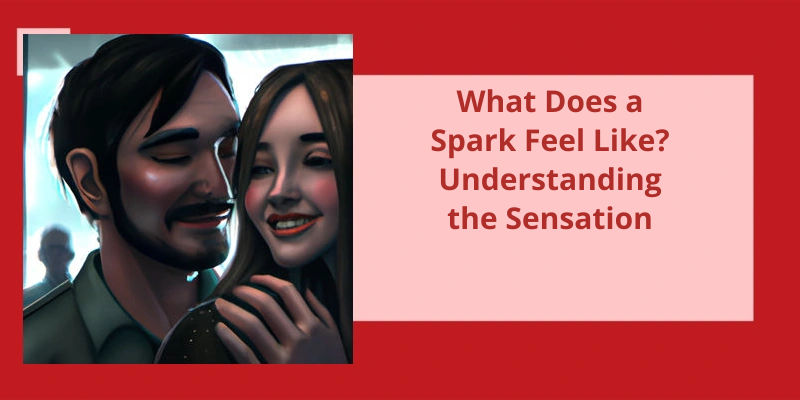Avoidants are a complex group of individuals whose behavior is often misunderstood. They’re often labeled as emotionally distant or commitment-phobic, but the reality is much more complex. They were raised to be self-reliant and to avoid showing vulnerability, which makes it hard for them to trust and connect with others. When they encounter someone who they feel is starting to become too close, they instinctively run. This behavior can feel confusing and hurtful to their partners, who often don't understand what they did wrong. However, understanding the root cause of avoidant behavior can help to create empathy and improve relationships.
Why Do Avoidants Suddenly Leave?
This behavior stems from their avoidance style, which is often rooted in childhood experiences of feeling rejected or neglected by caregivers. Avoidants may have learned that it’s safer to withdraw and distance themselves from others to avoid being hurt. As a result, they may struggle with intimacy and vulnerability in relationships.
When avoidants feel overwhelmed or uncomfortable in a relationship, they may resort to their default coping mechanism of withdrawal. They may start to distance themselves emotionally, physically, or both. They may become less communicative, spend less time with their partner, and avoid sharing personal information.
In some cases, avoidants may even break up with their partner suddenly and without warning. This can be confusing and hurtful for their partner, who may have no idea what went wrong. However, the avoidant may feel a sense of relief after the breakup, as it allows them to retreat further into their avoidance and avoid the discomfort of confronting their own issues.
Despite the pain that avoidants can cause their partners, it’s important to remember that they aren’t doing it intentionally. They’re simply acting out their avoidance style in the face of stress or conflict. If you’re in a relationship with an avoidant, it may be helpful to understand their behavior and approach the situation with empathy and understanding.
To prevent avoidants from suddenly leaving, it may be helpful to have open and honest communication about your needs and expectations in the relationship. It’s also important to respect their need for space and to avoid putting too much pressure on them to change. With patience and understanding, it’s possible to build a healthy and fulfilling relationship with an avoidant partner.
Tips for Supporting an Avoidant Partner Through Difficult Times
- Show them empathy and understanding, and be patient with their avoidance behaviors.
- Encourage them to seek professional help, but don’t push them too hard.
- Offer reassurance and understand that their avoidance isn’t a personal rejection of you.
- Help them to identify and work through the underlying issues that may be causing their avoidance.
- Be available to talk and share your own struggles with vulnerability to help them feel less alone.
- Respect their need for space and don’t pressure them to socialize or engage in activities they’re uncomfortable with.
- Work together to set small goals and celebrate their progress.
- Practice self-care and set healthy boundaries to prevent burnout.
It’s difficult when a partner or loved one suddenly disappears without explanation, leaving you with a sense of confusion and hurt. In some cases, this may be attributed to an Avoidant attachment style, where individuals struggle with emotional intimacy and fear getting too close to others. As a result, they may end relationships abruptly and cut off contact, which can be deeply unsettling for those on the receiving end. Understanding the reasons behind this behavior can help you move forward and potentially rebuild the relationship.
Why Do Avoidants Abandon You?
They fear being trapped or controlled by a partner and often prefer to maintain a distance in relationships. Avoidants have a heightened sense of independence and aren’t comfortable with emotional intimacy. They’re known for being emotionally unavailable and may have difficulty expressing their feelings to their partners. This can make it difficult for the other partner to gauge where the relationship is headed and what the avoidant partner is feeling.
In their mind, avoiding someone is the easier option than facing their own emotions and working through the issues that need to be addressed. They’re also known to be highly self-critical and may have a lot of negative self-talk going on in their heads. This can cause a lot of anxiety and stress in relationships, making it easier for them to shut down and cut off all contact altogether.
If you’re in a relationship with an avoidant partner, it’s important to understand that their behavior isn’t a reflection of how much they care about you. They’re simply wired differently and need more space than most people in order to feel comfortable. The best thing you can do is give them the space they need and avoid pushing them too hard to open up.
You can’t change someone who doesn’t want to change, and trying to force them to be more open and emotionally available will only lead to more frustration and anxiety in the relationship. The best thing you can do is focus on your own needs and try to find a way to communicate with your partner in a way that’s respectful and non-judgmental.
The Impact of Avoidant Behavior on Relationships
When someone displays avoidant behavior in a relationship, it can have a negative impact on their partner and the relationship as a whole. Avoidant behavior can include withdrawing emotionally, avoiding intimacy, and keeping one’s thoughts and feelings to oneself. This can cause a breakdown in communication, a lack of trust, and difficulty in building a strong emotional connection. As a result, relationships with someone who displays avoidant behavior may struggle to thrive and may ultimately end.
Source: Breakups | Free to Attach
It’s a common belief that love brings people closer together, but for love avoidants, the opposite may be true. As they begin to fall in love, they can transform into completely different people, becoming distant and detached from their partner. This raises the question: do avoidants leave when they fall in love? To find out, let’s explore the reasons behind this surprising behavior.
Do Avoidants Leave When They Fall in Love?
At the core of love avoidants behavior is a deep-seated fear of intimacy. They fear rejection and abandonment and therefore never allow themselves to fully connect with another person. As their relationship begins to develop, feelings of vulnerability and closeness may start to surface, and they may struggle to process those feelings. Instead of confronting them, they pull away and become emotionally distant.
They may struggle with the idea of staying in a long-term relationship, often citing a fear of being tied down or trapped. This is often a coping mechanism to avoid facing the deeper fears and insecurities that come with being vulnerable in a romantic relationship.
How to Recognize if a Person Is a Love Avoidant and Distinguish Them From Someone Who Is Just Not Interested in a Relationship
- They’re afraid of intimacy
- They often have an excessive need for independence and autonomy
- They frequently use distancing tactics such as becoming aloof or unavailable
- They avoid discussing their emotions and tend to intellectualize their feelings
- They can be emotionally unavailable or seemingly “unfeeling”
- They tend to have multiple short-term relationships rather than committing to one person
- They may appear charming and charismatic, but have difficulty forming deep connections
- They often have a history of childhood traumas or attachment issues
- They may have a fear of rejection or abandonment
- They may struggle with vulnerability and have difficulty trusting others
Do Avoidants Ever Want You Back?
Fearful avoidants are known for their difficulty in forming and maintaining relationships due to their attachment style. They often exhibit a tendency to push people away when they feel overwhelmed by emotional intimacy or vulnerability. The idea of being rejected or abandoned causes them immense anxiety and makes them avoid new connections or returning to old ones.
Despite this, it isn’t uncommon for a fearful avoidant to consider reconnecting with a former partner or friend. However, timing is critical. If you attempt to reach out too soon, they may reject you outright or become overwhelmed and retreat further into their shell. On the other hand, waiting too long may lead them to move on completely and forget about you.
It’s important to recognize that even if a fearful avoidant does initiate contact, it doesn’t necessarily mean they’ve fully resolved their attachment issues. They may be using the reconnection as a temporary means of feeling secure, and once they feel that security again, they may retreat and disappear once more.
If you’re considering reaching out to a fearful avoidant, ensure that you’re mentally and emotionally prepared for any outcome. They may reject you, ignore you, or even return with the same pattern of behavior that led to the breakup in the first place. Ultimately, the decision to reach out or not should be based on your own emotional needs and goals, rather than the hopes of getting them back.
The timing, circumstances, and individual mindset all play a role in their decision. Reaching out should be a cautious and thoughtful process, considering the potential outcomes and your own emotional well-being. Understanding the complexities of fearful avoidant attachment can help you navigate these situations with empathy and self-awareness.
How to Recognize and Understand Fearful Avoidant Attachment Styles in Relationships
- Avoids emotional closeness or vulnerability. They may keep conversations shallow or change the subject when it becomes too personal.
- May seem aloof or detached. They may not initiate physical touch or prefer to keep physical distance.
- Fearful of rejection or abandonment. They may test their partner’s commitment or push them away before they can be left.
- Likely to experience anxiety and/or depression. They may struggle with self-worth or have a negative self-image.
- Tend to have few close relationships. They may have a history of short-lived or tumultuous relationships.
It’s important to understand how avoidants behave when they develop feelings for someone. Despite being more open, they’ll still need their personal space and tend to withdraw from intense emotions. Manipulating or convincing them isn’t the solution. Instead, respecting their emotions and boundaries is vital for building a healthy relationship. Let’s dive deeper into the behaviors of avoidants when they like someone.
How Do Avoidants Act When They Like Someone?
An avoidant may show signs of liking someone by making an effort to spend time with them, but they may also be inconsistent in their behavior. They may go from being very affectionate to suddenly pulling away, which can be confusing for others. This is often a reflection of their own fear of intimacy, and they may be torn between their desire for closeness and their fear of getting hurt.
They may need more time than most people to open up and trust others. They may also have a difficult time expressing their feelings, which can make it hard for the other person to know where they stand. However, if an avoidant does open up and share their feelings, it can be a sign that they truly care.
Avoidants may also struggle with making commitments, including committing to a relationship. They may need reassurance and support from others to overcome their fear of commitment. It’s important to have open and honest communication with an avoidant about expectations and boundaries in a relationship. This can help avoid misunderstandings and hurt feelings down the line.
When an avoidant does enter into a relationship, they may be uncomfortable with public displays of affection or sharing personal details with others. They may prefer to keep their feelings private and intimate. This can be misconstrued as not caring, but it’s important to remember that avoidants have their own ways of expressing love and affection.
It can be challenging to navigate a relationship with an avoidant, but it’s not impossible. With patience, understanding, and open communication, it’s possible to build a strong and fulfilling connection with someone who struggles with intimacy. It’s important to respect their boundaries, acknowledge their feelings, and give them the space they need to feel comfortable. By showing love and support, you can help an avoidant overcome their fears and build a meaningful relationship.
How Can an Avoidant Overcome Their Fear of Intimacy?
- Seek therapy
- Practice self-reflection and self-awareness
- Challenge negative thoughts and beliefs about intimacy
- Take small steps towards intimacy, such as sharing personal experiences with trusted individuals
- Participate in group therapy or support groups for individuals with similar fears
- Communicate openly with partners about fears and concerns
- Develop a secure attachment style through mindfulness practices and self-care
- Practice vulnerability in non-intimate relationships, such as with friends or family
- Recognize avoidance behaviors and actively work to overcome them
Conclusion
As a result, avoidants often find themselves in a cycle of pushing away potential partners and isolating themselves from meaningful relationships. While running away may provide temporary relief from discomfort, it ultimately hinders their ability to form healthy and fulfilling connections. It’s important for avoidants to recognize this pattern and seek help in breaking it, whether through therapy or introspection. By facing their fears of intimacy and vulnerability, avoidants can open themselves up to the possibility of true emotional connection and a more satisfying life.






